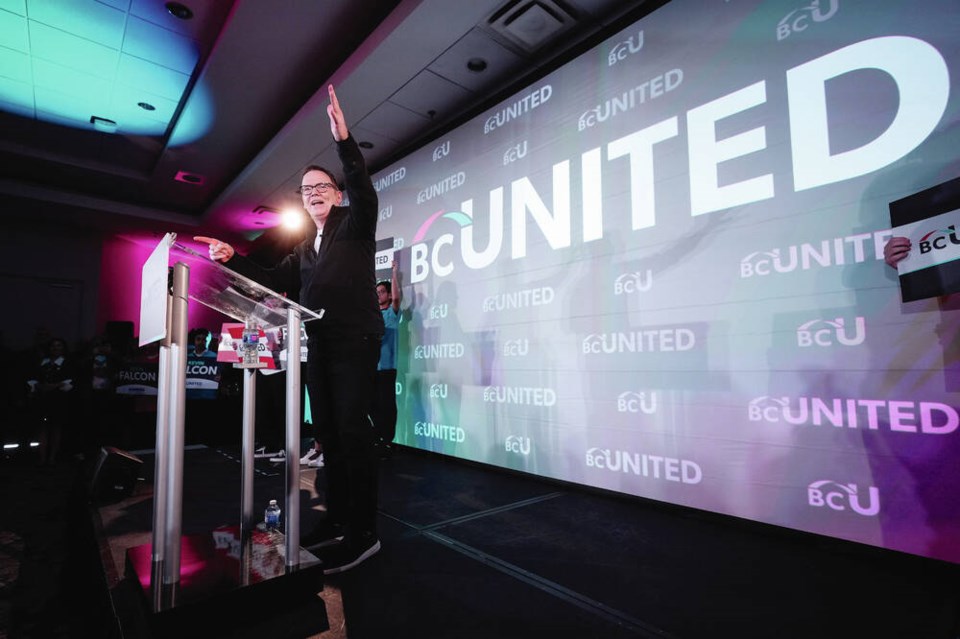In a recent Angus Reid opinion survey, the news for Opposition leader Kevin Falcon ranged from bad to worse.
The bad news is that his newly renamed BC United party (formerly the BC Liberal party) is being outgunned by the NDP 45 per cent to 31. The Greens lag still further behind at 16 per cent.
The worse news is that Falcon’s personal popularity rating stands at only 20 per cent, compared to Premier David Eby at 49 per cent.
Some of this may be due to the fact that it’s been just over a year since he took over as party leader — he’d been away from politics for close to a decade.
Some may also be owing to the fact that he spent much of that year tied up with the quest to rename his party.
There are a few hopeful notes for Falcon in the poll. Voters in sa国际传媒 rank the high cost of living as their most urgent concern, followed by health care and unaffordable housing.
In the short term at least, these appear well nigh intractable problems that Eby and his government will struggle to correct.
Since the NDP will have been in office for seven years if the next election is held as mandated in October 2024, that must limit Eby’s options. It may be difficult for him to argue that he needs a new mandate to resolve issues which, to an extent, have come to a head during his party’s term in office.
Yet that is a slim reed for Falcon to clutch at. He must do more than cite his opponents’ failures. He must offer credible and viable alternatives.
Eby may be vulnerable to the criticism that his solution to society’s ills has been to throw huge amounts of money at them. But what would Falcon do differently?
He’s known as a fiscal conservative from his time as finance minister under Christy Clark. And certainly that resonates with his base.
But it’s hard to see what the traditional beliefs of conservatism — small government, low taxes and an emphasis on personal responsibility — have to offer in the current situation.
Those beliefs were shaped by the period of rapid economic expansion which followed the Second World War. There were indeed opportunities in those buoyant years for people to determine their own futures.
But that is not the world we live in today. The COVID pandemic, and the social dislocation that accompanied it, have dramatically altered our landscape.
Anemic economic growth and surging interest rates have left taxpayers mortgaged to the hilt.
And the flight of office workers from urban centres presents a challenge we’ve never seen before.
How will shrinking the size of government deal with these problems? Isn’t deficit spending, an anathema to fiscal conservatives, a reasonable response to the high cost of household essentials such as food and transportation?
Falcon isn’t alone in this dilemma. A similar challenge faces the federal Conservatives and their new leader, Pierre Poilievre.
And that’s not to say Eby and his government have it all their own way. Their resort to heavy-handed regulations, as were used to curtail the property rights of strata owners, their repeat foreclosing of debate in the legislature, and their willingness to run up unprecedented debt levels, are all hostages to fortune.
They give Falcon a basis to mount a campaign, but only if he can reposition his party.
For he must do far more than re-label his movement.
Falcon must articulate, in terms that suit the moment, what his party stands for and how he would address the major issues of the day. And he has just 18 months to do it.
>>> To comment on this article, write a letter to the editor: [email protected]



